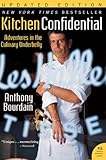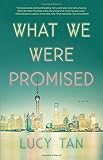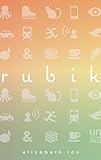Lillian Li uses her past as a server for inspiration in her debut novel, Number One Chinese Restaurant. “I got a taste of the physical and emotional toll that kind of work takes; a taste of the isolation of working six days a week, 12 hours a day serving other people; an understanding of the necessary camaraderie that forms between waiters and other staff to counter that isolation,” she said.
Her debut follows the Hans family and various staff members at the Beijing Duck House, a well-known Peking duck restaurant in Rockville, Md. Food is, of course, a big part of Number One Chinese Restaurant. While praising Ann Hood’s food writing (and “especially her essay on tomato pie”), Li also cites Anthony Bourdain’s Kitchen Confidential and Eddie Huang’s Fresh off the Boat as books about food that have impacted her life.
Li and I spoke via email about food, books, the past, and Number One Chinese Restaurant.

 The Millions: I’d like to begin by asking you about your writing process in regards to creating a family saga. You balance characters as they age; you weave plots; you create entire histories that extend far into the past and point toward various futures. It all sounds incredibly difficult to me. Some writers like to draw their characters to create some kind of tangible connection. Others use charts and different kinds of sorting tools. There are probably even a few out there who wing it. I’m curious to know what your outlining process was like for Number One Chinese Restaurant.
The Millions: I’d like to begin by asking you about your writing process in regards to creating a family saga. You balance characters as they age; you weave plots; you create entire histories that extend far into the past and point toward various futures. It all sounds incredibly difficult to me. Some writers like to draw their characters to create some kind of tangible connection. Others use charts and different kinds of sorting tools. There are probably even a few out there who wing it. I’m curious to know what your outlining process was like for Number One Chinese Restaurant.
Lillian Li: When I look back at how I wrote this book, I’m just amazed. I had no idea what I was doing, and I had no idea that I had no idea. For the first four months, there was no outline. There was no plot! There were only characters, their relationships to one another, and the restaurant. But I also knew that the relationships, more than even the restaurant, were where my interest in writing the book began (though maybe it’s better to say that I was interested in the kinds of relationships that could only exist in a restaurant like the Beijing Duck House). I think that’s why even though I threw out so many pages in the revision process, I didn’t end up cutting a single character.
Once I nailed down all the relationships in the book, I was able to work backwards. I think that’s why the multiple plotlines and character histories you’ve cited didn’t need to be outlined. The plotlines and histories came about naturally to explain why the relationships are the way they are in the present. For example, why Nan and Ah-Jack have been friends for 30 years, why Jimmy can’t stand his older brother Johnny, and so on. The trick, for me, was finding the realest-feeling part of my book and then using it as a compass for the rest.
TM: To build on that question a little, after you finished your first draft, how difficult was the edit for a novel so complex?
LL: I was fortunate to be in grad school when I started my first draft, which gave me a big pool of readers. This allowed me to write the novel almost recursively. I would write a hundred pages, show a classmate or teacher, then go back and revise. I believe that by the time I finished a full first draft, I had written multiple unfinished ones. I remember telling someone at the start that I was resigned to having to write 800 disposable pages to get to 200 workable ones. This felt less labor-intensive, though, than editing the novel after it had already been built. Then it’s a game of Jenga, where any change had the potential to send the entire structure crashing. I’m getting very nervous just imagining it.
TM: I know you worked briefly as a waitress at a Peking duck restaurant that is similar to the one in your novel. I’m sure your experience influenced your book to some extent. Did you find this experience to ever be a burden in regard to the creation and development of your novel?
LL: Brief is right! I didn’t even last a full month. At the time, I was feeling pretty weak for quitting (I mean, my mom worked at a Chinese restaurant for five years when she first came to America), and then when I realized I wanted to write a novel that took place in a Peking duck restaurant, I was even angrier at myself for not staying longer. But it was actually a blessing that I quit so early. I’d assumed the more time I spent in the restaurant, the more authoritative I’d feel writing about one. That turned out to be both true and untrue. I would be more authoritative…about the real restaurant. Not the fictional one. I think too much reality ends up suffocating the imagination. The few weeks I spent as a waitress gave me just enough information. I got a taste of the physical and emotional toll that kind of work takes; a taste of the isolation of working six days a week, 12 hours a day serving other people; an understanding of the necessary camaraderie that forms between waiters and other staff to counter that isolation. There would be no book without that kind of personal experience. There also wouldn’t be a book, at least not a book of fiction, if I’d spent a much longer time in the real restaurant. Or if I’d come into the restaurant wanting to write about it, instead of just wanting to make some money for grad school.
TM: I was struck in the second chapter by the loneliness the employees at the Duck House feel. When describing the connection between some of the workers, you write, “They were all friends, if one defined friendship as the natural occurrence between people who, after colliding for decades, have finally eroded enough to fit together.” I think this statement is so sad, but I also think it’s incredibly truthful for many of us. How prevalent do you think loneliness is in our current culture?
LL: What a good question! Whenever people say that writing is a lonely process, I both do and don’t understand what they mean. Like, yes, you often write alone, sometimes for many hours on end, and if you’re especially dedicated (I’m not), you eschew social events in order to stay home and write. But for me, without writing, I wouldn’t be less lonely. I’d be estranged from my loneliness. Or worse, I’d be ashamed of it. I think that loneliness isn’t so much prevalent in our current culture as it is universal. To be an individual is to be lonely. Writing, both the act of doing it and the act of reading it, puts us in touch with the loneliness that exists inside all of us. It shows us that loneliness might take a unique shape for each person, but no one is alone in feeling it. I’m not talking about the loneliness of being excluded by others or alienated by society, which is external and awful and should be undone, but the internal loneliness that we’re all born into. I think that kind of loneliness isn’t a problem, unless we either don’t admit to living with it, or think we’re the only ones who are.
TM: In your novel, brothers are upset with one another. A mother and son struggle to get along. Husbands and wives fight to stay together. I mean, a lot is happening on an emotional level. Still, though, there’s so much love and tenderness flowing through these pages. Was it difficult for you to love these characters after some of their decisions?
LL: It wasn’t difficult for me because if I know what compels a person to act the way they do, it softens my judgment of them. It allows me to see how I might have acted similarly if I’d been given the same set of circumstances and history. And when you write characters that are, hopefully, real on the page, that means everything they do, no matter how awful, has an underlying explanation. The bigger issue I face is whether the reader can still love these characters after their decisions. Some probably won’t. That’s understandable. What I love about fiction is how it stretches certain muscles that daily life only stiffens. Relating to someone who acts against how we think they should is one of those muscles. Some readers will be able to stretch with my characters more easily, and others will feel that stretch acutely and hate the discomfort. I know that I’ve been on both sides of that reading experience. But no matter what, those muscles have been stretched, and that’s ultimately what matters. Or so I tell myself…
TM: As I was reading, I began to notice an appreciation for the past. I love how you mention the Duck House’s history: “Before it became a restaurant, the Duck House building had been a pharmacy, a real estate office, and at least a half dozen other businesses in between.” Everything really is built on something.
I think the focus on the past’s richness is probably most evident, though, when looking at the two restaurants. The Glory is shiny and new, with fusion cuisine. It’s attractive, but it doesn’t seem to have much of a heart. The Duck House, on the other hand, isn’t very attractive: “The gaudy, overstuffed decor didn’t help. A deep, matte red colored everything, from the upholstered chairs to the floral carpet to the Chinese knots hanging off the lantern lighting, their tassels low enough to graze the heads of taller customers. Framed photos of famous clientele protruded from the walls.” However, this is the place that has heart. Was this a conscious decision on your part?
LL: Rather than an appreciation for the past, I’d say that I have an appreciation for personal history, for the accumulation of years in the same place, with the same people. I think that is ultimately why the Duck House feels like it has more heart than the Beijing Glory—it’s been around longer, and it’s built a backbone of staff that has seen the restaurant, and each other, through multiple decades. I don’t think the original owners of the Duck House, Jimmy’s parents, intended for their business to have heart. I don’t want to romanticize past generations and give them more credit than they deserve. In the end, Jimmy’s parents were driven by the same motivations as Jimmy: ambition, respect, and financial success. At the same time, by simply existing and thriving for as many decades as it has, the Duck House has accumulated a kind of priceless history. To lose that history, or worse, to throw it away, is a great tragedy. No amount of money or class can give an establishment that same density of spirit, that intangible richness, and that’s the lesson Jimmy ultimately has to learn.
 TM: Since you are a bookseller at the beloved Literati, I can’t leave without asking you a couple of questions about books. I’ve really been into books about food recently. I just finished Michael W. Twitty’s The Cooking Gene and thought it was absolutely wonderful. With your novel being set largely in a restaurant, were there certain books based around the food/restaurant industry that you read for research? Or were there other books that inspired your book in some way?
TM: Since you are a bookseller at the beloved Literati, I can’t leave without asking you a couple of questions about books. I’ve really been into books about food recently. I just finished Michael W. Twitty’s The Cooking Gene and thought it was absolutely wonderful. With your novel being set largely in a restaurant, were there certain books based around the food/restaurant industry that you read for research? Or were there other books that inspired your book in some way?
LL: I didn’t read any books for research, but I have always had an interest in chef memoirs. My perennial favorite is Anthony Bourdain’s Kitchen Confidential. I picked it up at a used bookstore when I was a sophomore in college and have read it countless times since. Not on purpose, though. Kitchen Confidential is the book I keep in my bathroom at my parents’ house. If you have not experienced the phenomenon of keeping a book in a bathroom you only occasionally use, I recommend it! As a result of its placement in my life, I read Kitchen Confidential from start to finish every two years or so. By the time I finish the last page, I just turn right back to the first. The bravado and energy of Bourdain’s writing definitely seeped into a few chapters of my book and made certain kitchen scenes easier to access. I also loved the anger in Eddie Huang’s Fresh off the Boat. By the time I read his memoir, I’d already finished a draft of the novel, so the experience of reading Huang was more affirming than informative. I was gratified to see how many parallels Huang and my character Jimmy shared, and the similarities in their emotional landscapes. Finally, I love Ann Hood’s food writing, especially her essay on tomato pie. Her exploration of food, family, and memory very much align with my own interests.
TM: What new or soon-to-be-released books should we be reading?
LL: As a bookseller, I can’t generalize about books! I always have to ask, what else have you read? So here are the books you should be reading…
 If you love explorations of the American dream transplanted in Shanghai, generational sagas, and the lives of the newly rich and confused, read What We Were Promised by Lucy Tan.
If you love explorations of the American dream transplanted in Shanghai, generational sagas, and the lives of the newly rich and confused, read What We Were Promised by Lucy Tan.
 If you love trippy, experimental ruminations on the intersections of technology and the human condition, read Rubik by Elizabeth Tan.
If you love trippy, experimental ruminations on the intersections of technology and the human condition, read Rubik by Elizabeth Tan.
 If you love satirical, hilarious, and ultimately compassionate snapshots of contemporary black life and interiority, read Heads of the Colored People by Nafissa Thompson-Spires.
If you love satirical, hilarious, and ultimately compassionate snapshots of contemporary black life and interiority, read Heads of the Colored People by Nafissa Thompson-Spires.
 If you love atmospheric mysteries full of light and mist, dreams and omens, all set in small-town Japan, read Rainbirds by Clarissa Goenawan.
If you love atmospheric mysteries full of light and mist, dreams and omens, all set in small-town Japan, read Rainbirds by Clarissa Goenawan.
 If you love lush, historical love triangles where history plays a shadowy, villainous role, read If You Leave Me by Crystal Hana Kim.
If you love lush, historical love triangles where history plays a shadowy, villainous role, read If You Leave Me by Crystal Hana Kim.
 If you love short story collections where every story is a contender for your heart, as well as a deep dive into the emotional depths of black boys and men learning how to care for themselves and each other, read A Lucky Man by Jamel Brinkley.
If you love short story collections where every story is a contender for your heart, as well as a deep dive into the emotional depths of black boys and men learning how to care for themselves and each other, read A Lucky Man by Jamel Brinkley.
 If you love beautiful and piercing narratives about grief, friendship, the loneliness of a writer’s life, and the love of a good dog, read The Friend by Sigrid Nunez.
If you love beautiful and piercing narratives about grief, friendship, the loneliness of a writer’s life, and the love of a good dog, read The Friend by Sigrid Nunez.









